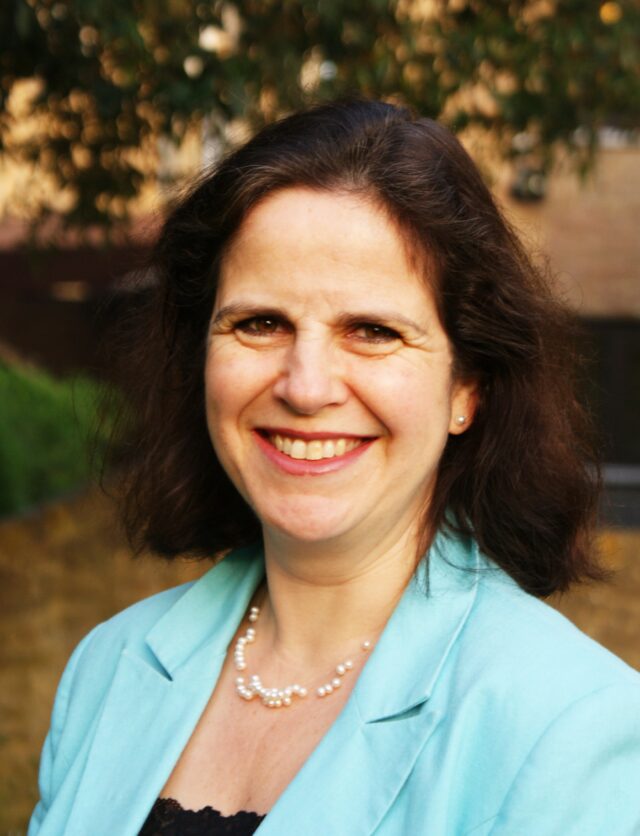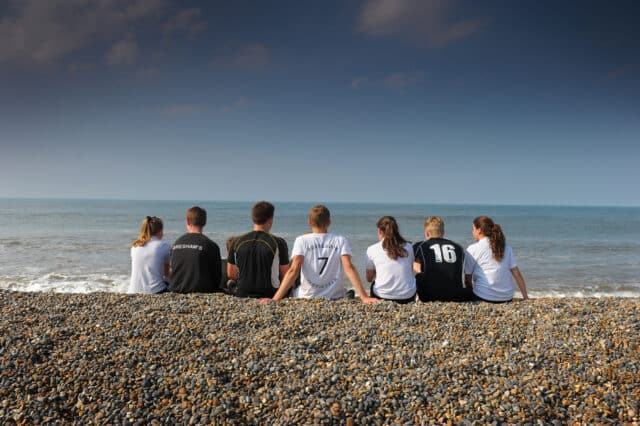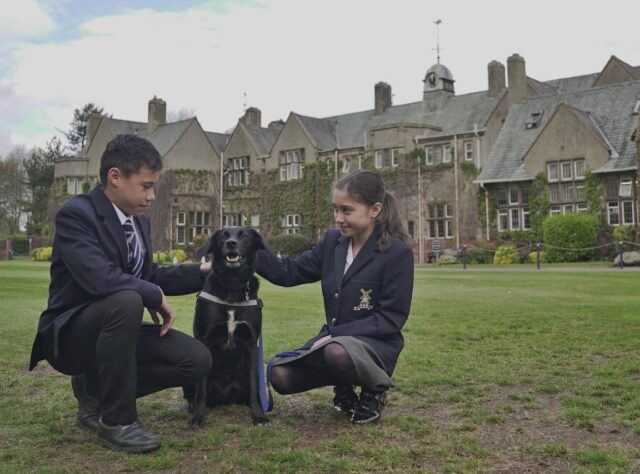Blog
The Exchange: staying in touch with the world of our pupils

Sarah Kerr-Dineen
Head at Oundle School
Read the blog
We will all have picked up along the way ideas from wise mentors that have stuck with us. For me, one such is the understanding that being alert to the distance between what is conveyed and what is understood is where the skill of teaching lies: the fog between transmitter and receiver. Another is that teenagers are confident, by and large, that their teachers have no life experience that will be useful to them.
In combination, these two make the teaching of PSHE in schools a challenge. Children move through adolescence at different rates. Most groups of Year 9 or Year 10 pupils contain young children and mature adults, with all stations between. The same content will therefore not make sense or feel relevant in the same way to each individual. We are used to differentiating, but the PSHE classroom contains a range greater than we are likely to encounter in any academic lesson. A spiral curriculum of some kind is commonly adopted for this reason.
The trouble is, of course, that those who are not ready, switch off. Those who have taken it in last time round, also switch off: they want something different, something that meets them at the point they have reached. Where the content and approach finds its audience – where the message transmitted is securely received – an indelible impact will have been made, but it can feel a little hit and miss.
Most Heads will have had a strong involvement with PSHE earlier in their career, which signals its central importance to any vision of education. Many of us will nonetheless remember the excruciating awkwardness as a young teacher of being presented with a condom and a banana by the Head of PSHE and told to get on with it.
Things have come a long way since then. PSHE programmes are much better resourced and are given proper curriculum time. Teachers are more often involved because they are drawn to know more about the subject and value its educational opportunities, rather than because their timetable happens to be light that year. The best programmes are driven by what the pupils tell us they want and need by way of preparation for life.
Nonetheless, the uncomfortable truth remains that in the eyes of many teenagers their teachers do not and cannot understand their world. Allegedly they were once teenagers themselves but they are either old (up to 30) or very old (all points north).
At Oundle over recent years, the PSHE programme has undergone a renaissance under the leadership of a gifted colleague who has extraordinary energy and the pupils’ trust. The Learning for Life programme Hannah Dawes has devised with their input is transformative in its capacity to respond and so narrow the gap between transmitter and receiver. Moreover, she has acted upon the understanding that pupils are most receptive to voices from what they see as their world.
Over lockdown, The Exchange was created a free resource for teenagers and schools across the UK. Hannah has drawn on support from interested people to create a web series that explores subjects that matter to young people. Topics include consent, coming out, body confidence, ‘revenge-porn’ or image-based abuse, period stigma, anxiety, gambling and social media.
Each episode features a pair of interviews. One is with a public figure whose voice is respected by young people. The other is with an expert who works in the field in a professional capacity. Guests include Radio 1 presenter Vick Hope, Ditch the Label’s Liam Hackett, model Emma Breschi, filmmaker and speaker Max Stossel, activist Emma Holten, Professor of Law Clare McGlynn, blogging collective British Bindi, and mental health educator Pooky Knightsmith.
Further episodes are being released before Christmas, the hope being that they will offer informative conversations for young people to access over the Christmas break. All episodes are hosted on www.jointheexchange.co.uk and on YouTube, Instagram and TikTok.
I hope that you will feel able to pass this on to colleagues and that you will look at it yourself when you have a moment. Staying in touch with the world of our pupils can become harder as a Head. The Exchange has taught me a great deal.

